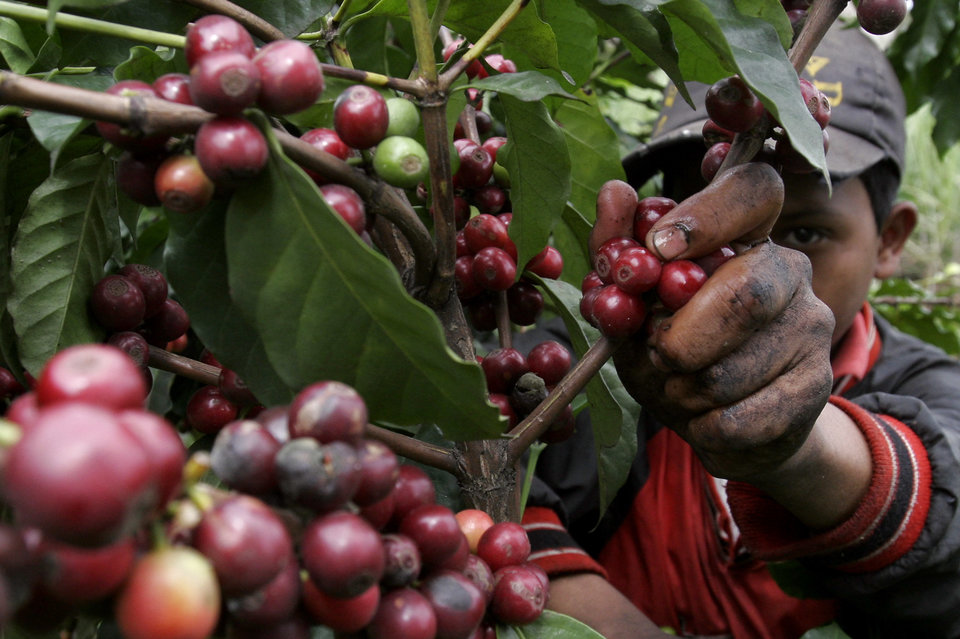Introduction to the production method of Rwandan Coffee Coffee Chimere Manor in Rwanda
The method of making Rwandan coffee:
Gorilla's coffee belongs to individual coffee, only Arabica coffee, we recommend that you use coffee utensils to make delicious Rwandan coffee.
What kind of coffee appliances do you have?
Coffee can be made from hand pots, French presses, trickling pots and hanging-ear coffee bags. (1) the Rwandan Patriotic Front (Rwandan Patriotic Front): the ruling party, the predecessor of the Rwandan National Unification Union established in Uganda in the 1980s, changed its name to its present name in December 1987. There are about 600000 party members. He became the ruling party in 1994. In December 2002, AIFL held an enlarged meeting of the Politburo and formulated a future action plan. Francois Ngarambe (Fran ç ois NGARAMBE) was elected General Secretary of AIFF. In December 2005, AFP held its sixth National Congress, focusing on the action plan for the next three years, the promotion of the reform of the national administrative system, and the promotion of democracy and development. The leading body of the party was re-elected at the meeting, and Kagame and Ngarambe were re-elected as party chairman and general secretary respectively. The party holds 36 seats in parliament.
(2) Social Democratic Party (Democratic Socialist Party): participating parties. Founded on July 1, 1991, most of the intellectuals in the south. Chairman Vincent Biruta. The party holds seven seats in parliament.
(3) Liberal Party (Liberal Party): participating parties. Established on July 14, 1991, mainly Tutsi. On June 8, 2003, the party held a meeting to elect a new executive committee, with Prospes Higiro as its chairman. The party holds five seats in parliament.
(4) the Central Democratic Party (Centrist Democratic Party): founded on June 30th, 1991. Formerly known as the Christian Democratic Party, the name was changed in 1998 to draw a line between religious mistakes made during the 1994 Holocaust and to play down religious overtones. A new Executive Committee was elected in February 2003. Alfred Mukzamfula was elected Chairman of the Executive Committee and Drossela Mugorevell (female, Drocella MUGOREWERA) served as General Secretary. The party has one seat in parliament.
In addition, there are four political parties, namely, the ideal Democratic Party (Democratic Ideal Party), the Rwandan Socialist Party (Rwandan Socialist Party), the Rwandan people's Democratic Alliance (Democratic Popular Union of Rwanda) and the Progressive Harmony Party (Progress and Concord Party). [3]
The government
The current government was established in August 2010 and partially reorganized in October 2011, February and May 2013. the main members are: Prime Minister Pierre Damian Habran (Pierre Damien HABUMUREMYI); Minister of Natural Resources (Land, forests, Environment and Mining) Stanislas Stanislas KAMANZI; Minister of State for Mining of the Ministry of Natural Resources Ewald Imena (Evode Imena) Minister of Agriculture and Animal Resources Agnes KALIBATA (female); Minister of Education Fan Shang Biruta (Vincent BIRUTA); Minister of State responsible for primary and secondary education of the Ministry of Education: Matthias Haleba Mongolia (Mathias HAREBAMUNGU); Minister of State for Vocational and Technical Education and training of the Ministry of Education Albert Ensengioumwa (Albert NSENGIYUMVA), Minister of Health Agnes BINAGWAHO (female) Anita Asimwe, Minister of State for Public Health and Primary Health Care of the Ministry of Health (Anita ASIIMWE, female); Minister of Defense James KABAREBE; Minister of Justice Johnston BUSINGYE; Minister of Foreign Affairs and Cooperation Louise Louise MUSHIKIWABO, female; Minister of State for Foreign Affairs and Cooperation Eug è ne-Gasana Minister of Women and Family Affairs of the Prime Minister's Office Oda Gasinzigwa (Oda Gasinzigwa, female); Minister of Infrastructure Silas Luvakabamba (Silas Lwakabamba); Minister of State for Energy and Water of the Ministry of Infrastructure, Emma Francoise Isom Bingabo (Emma Francoise ISUMBINGABO); Minister of State for Transport of the Ministry of Infrastructure, Alexis Nzahabwanimana (Alexis NZAHABWANIMANA) Sheikh Musa Fadzir Halemana (Sheikh Moussa Fazil HARELIMANA), Minister of Internal Security; Monique Mukaruliza, Minister of East Community Affairs (Monique MUKARULIZA, female); Serapina Mukantabana, Minister of Refugee and disaster Relief (Seraphine MUKANTABANA, female); Minister of Cabinet Affairs, Stella Ford Mugabo (Stella Ford Mugabo); Minister of Local Government James MUSONI Minister of State for Social Affairs of the Ministry of Local Government: Albela Mukabalamba (Alvera MUKABARAMBA); Minister of Public Affairs and Labour Anastas Murekezi (Anastase MUREKEZI); Minister of Trade and Industry Francois KANIMBA; Minister of Sports and Culture Protais Protais Mitali; Minister of Youth and Information Industry Jean Felbe Nsengimana (Jean Philbert NSENGIMANA) Minister of the Presidential Office Wei Nanjia Tujieyezu (Venantia TUGIREYEZU, female)

Important Notice :
前街咖啡 FrontStreet Coffee has moved to new addredd:
FrontStreet Coffee Address: 315,Donghua East Road,GuangZhou
Tel:020 38364473
- Prev

Washed raw coffee beans of grade G1 snow coffee native species Waka Worka in Ethiopia Yega Xuefei
Yejaschuffe itself is a small town of about 20, 000 people, and the three neighboring producing areas, Wenago, Kochere and Gelena Abaya, are also classified as Yejasuffe because they produce coffee with almost the same flavor as Yejasuffe. Yejasuffe is similar to neighboring Sidamo in terms of culture and geography, but it seems to be more concerned about it.
- Next

Coffee Flavor and Taste Manor in Tanzania introduction to Arusha Coffee Manor
Tanzanian coffee is mostly washed. After picking, coffee farmers will send the coffee fruit to the nearest processing plant for processing. The treatment step of the water washing method is to screen and remove the impurities in the coffee fruit, then remove the coffee pulp and exocarp, send it into the fermentation tank, and remove the pectin layer from the inner pericarp by fermentation. Clean
Related
- Does Rose Summer choose Blue, Green or Red? Detailed explanation of Rose Summer Coffee plots and Classification in Panamanian Jade Manor
- What is the difference between the origin, producing area, processing plant, cooperative and manor of coffee beans?
- How fine does the espresso powder fit? how to grind the espresso?
- Sca coffee roasting degree color card coffee roasting degree 8 roasting color values what do you mean?
- The practice of lattes: how to make lattes at home
- Introduction to Indonesian Fine Coffee beans-- Java Coffee producing area of Indonesian Arabica Coffee
- How much will the flavor of light and medium roasted rose summer be expressed? What baking level is rose summer suitable for?
- Introduction to the characteristics of washing, sun-drying or wet-planing coffee commonly used in Mantenin, Indonesia
- Price characteristics of Arabica Coffee Bean Starbucks introduction to Manning Coffee Bean Taste producing area Variety Manor
- What is the authentic Yega flavor? What are the flavor characteristics of the really excellent Yejasuffi coffee beans?

